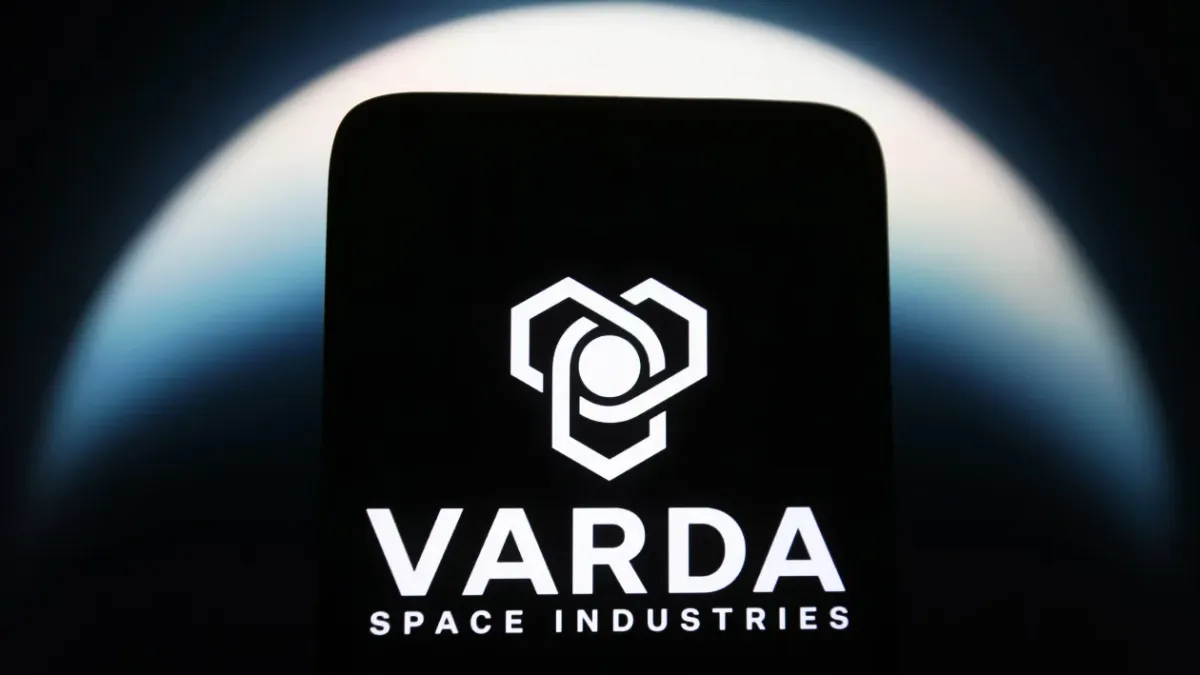Varda Space Industries Raises $187 Million to Transform Space-Based Drug Production

In a daring step towards restructuring the pharmaceutical sector, Varda Space Industries has raised $187 million in Series C funding, increasing its capital to $329 million. Natural Capital and Shrug Capital led the round, with prominent participation from players such as Peter Thiel, Lux Capital, Khosla Ventures, and Caffeinated Capital. The funds will help speed up Varda's mission: manufacturing breakthrough medications in space.
Based on the idea that microgravity environments can produce better pharmaceutical outcomes, Varda is working on means to crystallize complex drug molecules in space. The drugs made in space, typically hard or impossible to manufacture well on Earth, may be a start to more effective treatments with greater absorption and longer shelf life.
Building the Orbital Pharma Lab of the Future
The firm's W-Series 1 capsule already created history after gaining FAA approval to return to Earth in 2024, after the successful crystallization of Ritonavir, a common antiviral medicine.
Varda has conducted three missions so far, while there is a fourth mission in orbit and a fifth mission planned by the end of 2025. All of Varda's spacecraft are in-house built, allowing the firm to have complete control over the design and manufacturing process.
More Than Pharma
Though Varda's lead mission is pharmaceutical production, it has also drawn interest from the U.S. government, running a testbed platform with its reentry vehicles to test technologies for national security. The company is the first to process material in orbit outside the International Space Station, establishing a new business model for commercial space manufacturing.
Infrastructurally, Varda is growing very fast. It has established a laboratory in El Segundo, California, and expanding operations in Huntsville, Alabama. These new facilities will help further the work of making microgravity-based manufacturing a fundamental part of the emerging orbital economy.
A Vision for the Orbital Economy
Chief Science Officer Adrian Radocea said, "Our new lab facility is an investment in our faith that in-space pharmaceutical manufacturing will fuel the building of the orbital economy." The space-based pharma model not just has scientific interest but also massive commercial potential, especially for high-value, complex drugs which are otherwise difficult to manufacture.
As the firm prepares for its fifth mission, it's evident that Varda's ambitions extend well beyond experimentation-they're setting the stage for a commercial production model in space.
Frequently Asked Questions (FAQ)
Why is Varda producing drugs in space rather than on the ground?
In microgravity, molecules act differently, which can lead to purer, more stable, or more potent drug formulations. This is particularly beneficial for drugs that fail to crystallize under the gravity of Earth, therefore being difficult to produce at large scales.
What types of drugs can Varda produce in space?
Varda had an initial success with Ritonavir, but its new expanded facilities will be used to develop a broad variety of complex molecules, particularly in the area of biologics, which involves protein-based or cell-based medicines.
How does Varda return the drugs to Earth?
Varda utilizes its specially designed W-Series reentry capsules. These are fired into orbit and subsequently come back to Earth with the produced pharmaceuticals, safe and intact for post-mission testing and utilization.
Who are the largest Varda investors?
The Series C round was spearheaded by Natural Capital and Shrug Capital. Other notable co-investors are Peter Thiel, Lux Capital, Khosla Ventures, and Caffeinated Capital, showing high confidence in Varda's vision.
Is Varda collaborating with the U.S. government?
Yes. Varda has been offering testbeds for government initiatives with its reentry systems to enhance the development of national space and defense technology.
